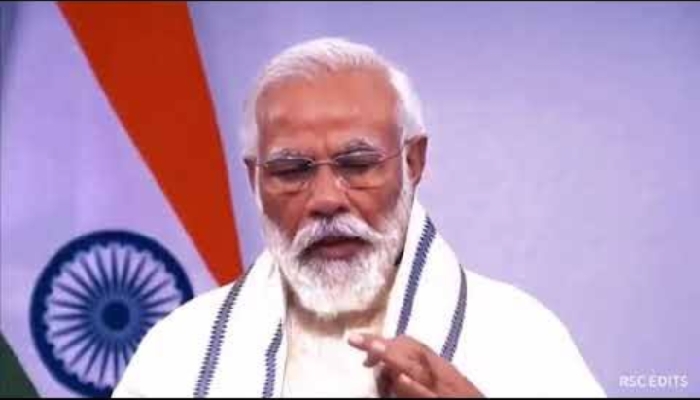
Ayodhya, Aug 4: Various religious ceremonies have been conducted for the past 108 days by saints in Ayodhya and Prime Minister Narendra Modi will take part in `muhurat puja' at 12.44 pm on Wednesday as part of 'bhoomi pujan' for construction of a grand Ram temple.
PM Modi will arrive at 12:30 pm at the Ramjanmbhoomi and take part in various prayers including the main "bhoomi pujan".
Govind Giriji Maharaj, treasurer of Shri Ramjanmbhoomi Teerth Kshetra Trust, said that the religious ceremonies will begin from 8:30 am in the morning and will continue till 12:30 pm.
"The Prime Minister will arrive at 12:30 pm and he will offer `puja' for 15 minutes and take 'sankalp'. First Lord Ganesh will be worshipped then he will offer prayers of eight shilas. Some prayers at shilas we have conducted already," Giri told said.
"The muhrat of pooja is at 12: 44 pm. He will say words 'prathisthapayami' and it is crucial to be done in that muhrat," he said.
Elaborating on the rituals to be performed tomorrow by the Prime Minister, the trust member said that most important is `Kurm Shila' .
"The most important is Kurm Shila - this is right beneath the place where Ram Lalla will be seated. It is this ceremony that we are conducting tomorrow. A cone of Bakul tree wood will be kept in ceremony. This isn't an ordinary cone, it is made of various metals including gold and silver.
A lotus with nine gems too will be part of pujan which will be offered to this cone by the Prime Minister," he said.
"These are intrinsic to main bhumi pujan. The first religious ceremony was of Devi Kali. There are two devi kalis here, `choti' and `badi'. She is kuldevi, family's goddess of Sita. Today we held Ramarchan ceremony," said Giri.
The Vedic pundits who are involved in religious ceremonies have come from Delhi, Mathura and Kashi.
Asked about the absence of Nepal's religious head of Janaki Mandir, he said that there are many, including 20 religious heads, who would not able to come because they can't leave their seat in Chaturmas.
On the design of temple, Giri said, the old design will remain as it is except a rise in height.
"The structure has become popular and we will keep it. Keeping in mind the modernisation of architecture, we have raised height from 128 feet to 161 feet and instead of three peaks we will have five peaks," he said.
Kanchi Pithadhishvar Maharaj has sent silver coins as souvenirs for every sadhu participating in it, Giri said.
Invitations have been sent to 175 people, including 135 saints of 35 religious organisations to attend the foundation stone-laying ceremony of Ram temple.
The construction of Ram temple will begin in Ayodhya after the ceremony to lay the foundation stone.






Comments
Add new comment